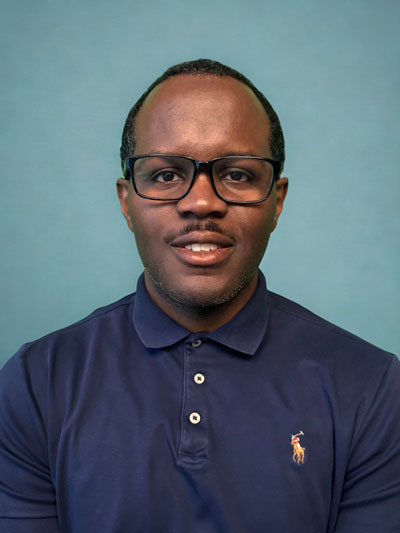Lawrence T. Jones, LCPC, LPC

Owner of Achieve It Counseling & Consulting
Member Since 2024
ACA is a community of diverse, vibrant counselors and educators who are changing lives and the world at large. Lawrence Jones, owner of Achieve It Counseling & Consulting in Largo, Md., realized early in life he had a knack for getting people to open up to him about their problems. Yet the former University of Delaware football defensive back/wide receiver didn’t initially set out to pursue a career in counseling. But when life threw him a curveball, he seized the opportunity and hasn’t looked back.
We spoke to Lawrence about his experience. Read on for more from that conversation, which has been edited for clarity.
Tell us about your background.
I’m originally from Matoaca, a small town in southern Virginia. I’m an only child and grew up in a very tightknit family. My mother raised me with help from my grandparents, which speaks to what I do today, working with fatherless fathers. Growing up, my grandfather was that father figure for me. He did a really good job raising me and helping me become the man I am today. Mentors and coaches also played a big role in my life. In high school, I excelled at athletics. I got a four-year football scholarship to go to University of Delaware and received my undergraduate degree in business administration. I later went on to get a master’s degree in professional counseling from Capital Bible Seminary.
Talk about your professional background.
I’ve been in the field for about 14 years. For 10 years, I was with an organization in Landover, Maryland where I worked with kids, teens, and families, specializing in trauma. From there, I transitioned to school-based counseling, working at two high schools and an elementary school. I moved into management for a couple of years. But when I became a manager, I lost my love for counseling. In my mind I didn’t go to school to just manage people and check emails all day. That experience sparked my interest to get back into individual counseling and launch my own practice.
What drew you to pursue a career in counseling?
My cousin is the reason I eventually became a therapist. Growing up in rural Virginia, I never knew what a therapist was. If you had problems, you just figured it out. But my cousin, who was 10 years older, would talk to me about his problems. I realized I had this skill where people would just naturally open up to me. It wasn’t until I was laid off in 2008 from my job in sales that I decided to go back to school to get my master’s degree. Looking back, losing my job is probably the best thing that ever happened to me because I took a class in individual counseling and really enjoyed it. At the same time, I also met my now wife.
What are your specific areas of expertise?
A lot of men have unspoken trauma. Because I grew up without a father, a lot of my work focuses on trauma and helping men be better husbands and better fathers and giving them the tools they need to succeed.
What is something most people may not know about you?
Many people are surprised to hear that I’m an introvert. As an only child, I’m very comfortable with silence and solitude. But I’m also very outgoing and know how to hold a conversation. At the end of the day though, I’m done and need time to myself.
What advice do you have for those who are considering entering the profession?
Counseling is a vibrant profession. There are a lot of men looking for services, but there aren’t enough of us in the field, especially men of color.
What is one piece of advice someone has given you that you’ve found helpful?
My high school track coach would always preach, “There’s no such thing as luck. There’s only preparation meets opportunity.” And that still rings true to me today. Regardless of what you want to do in life, you have to prepare.
What do you value most about being an ACA member?
The relationships that develop. I’m embarrassed to admit that this year (2025) was the first time I went to the ACA conference. And I had a phenomenal time! In my 14 years of being a therapist, I regret not going sooner. Now I understand the value of attending and the relationships that develop over the three days. I’m already planning to go to next year’s conference and have started promoting it to my network. Sometimes you have to go to something to see the value.
